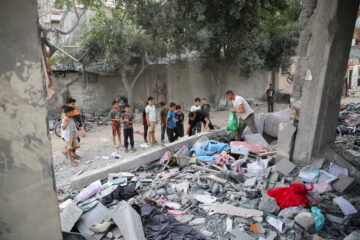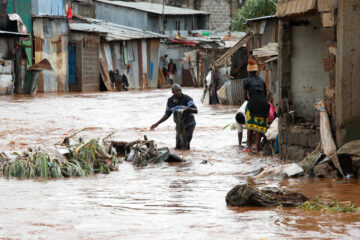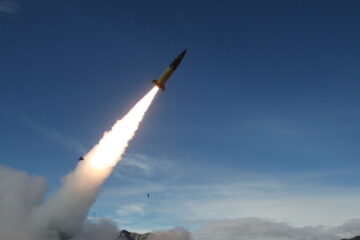US postpones meeting with Russia on Syrian crisis
The US has postponed a meeting with Russia this week aimed at finding a resolution to the Syrian crisis, as it is weighing a military strike against the Arab country in the wake of alleged use of chemical weapons.
The talks Thursday were due to be the latest in the U.S.-Russian bid to find a political solution to the crisis.
A senior State Department official said late Monday the delay is in light of the "ongoing consultations" on how to respond to reports of chemical weapons use in Syria.
Russia regrets the postponement of a meeting scheduled for Wednesday in the Hague with senior diplomats from the United States on an international peace conference for Syria, Deputy Foreign Minister Gennady Gatilov said on Tuesday.
A White House spokesman said Monday there is "very little doubt" the Syrian government used chemical weapons.
Russia, a Syrian ally, has dismissed the allegations, saying the United States and other Western nations do not have proof of such an attack.
The U.S.-Russian effort to bring together the Syrian government and the opposition for peace talks has yet to result in negotiations. The State Department official says the U.S. remains committed to the process and will reschedule the planned talks with Russia.
US Secretary of State John Kerry has described the use of chemical weapons in Syria as an unforgivable moral obscenity, saying that the Obama administration believed the Syrian regime was responsible for it.
Speaking at the State Department Monday, Kerry said President Barack Obama believes there must be accountably for those who would use what he called such "heinous weapons." He did not say what actions the president might take.
He said footage of the alleged chemical weapons attack near Damascus was "real and compelling" and "undeniable".
He said President Barack Obama was considering a response.
Kerry said the use of chemical weapons cannot take place without consequences, and he said we must stand up to assure there is accountably so that such weapons are never used again.
There has been mounting pressure on the United States and other countries to address Syria\’s two-year conflict, following allegations last week that chemical weapons were used outside of Damascus, killing hundreds of people.
President Obama said last year that chemical weapons use in Syria would cross a "red line,\’\’ and likely would change his calculation in deciding on a U.S. response. However, the president took little action after reports earlier this year that chemical weapons were used on a small scale in Syria.
Earlier Monday, U.S. Defense Secretary Chuck Hagel said any action on Syria will be taken "in concert with the international community and within the framework of legal justification." He made the comment on a visit to Indonesia.
Some U.S. lawmakers, including Obama\’s opponent in the 2008 presidential election, Senator John McCain, have called for limited strikes against Syrian military targets.
U.N. inspectors have visited a Damascus suburb to meet victims of suspected chemical weapon attacks, after the Syrian government accepted international demands to grant access to the team.
The inspectors spent several hours in the southwestern suburb of Moadamiyeh on Monday, before returning to their hotel in the capital. Moadamiyeh is one of several rebel-held districts where the August 21 attacks took place.
The U.N. team met with doctors and survivors of the attacks at a makeshift hospital and took samples.
The convoy of six vehicles came under fire on Monday in the buffer zone between rebel and government areas near Damascus as it travelled to Moadamiya and Ghouta, the sites of the suspected attack last Wednesday.
"The first vehicle of the investigation team was deliberately shot at multiple times by unidentified snipers," UN spokesman Martin Nesirky said. No one was injured and a replacement vehicle was obtained, he added.
Syrian state media blamed opposition "terrorists" for the attack, though the claim could not be verified.
Rebels and activists say government forces used chemical weapons that killed hundreds of people. The government denies the allegations, and has accused the rebels of using such weapons.
Syrian President Bashar al-Assad dismissed the accusation as "an insult to common sense" and warned the US against military intervention.
"If someone is dreaming of making Syria a puppet of the West, then this will not happen," he told the Russian newspaper Izvestiya.
A spokesman for Secretary-General Ban Ki-moon said the U.N. team\’s vehicle was shot at multiple times, rendering it "no longer serviceable." The inspectors returned to a government checkpoint, but planned to continue their work with a new vehicle.
Ban said earlier Monday that the mission\’s success could deter the future use of chemical weapons in Syria and elsewhere.
"All those in Syria have a stake in finding out the truth. The whole world should be concerned about any threat or sue of chemical weapons, and that is why the world is watching Syria."
Russia\’s foreign ministry said Foreign Minister Sergei Lavrov expressed "deep concern" about such statements about military readiness when he spoke to Kerry on Sunday.
Syrian President Bashar al-Assad further warned in an interview published Monday in a Russian newspaper that any U.S. military intervention would fail.
Assad also reiterated his government\’s denial of using chemical weapons last week, saying some of his forces were in the Ghouta area and that deploying the weapons at that time would be illogical.
France and Britain, which have been critical of the Syrian government throughout the more than two-year crisis, are weighing their own responses.
British Foreign Secretary William Hague said Monday it may be possible to act without unanimous consent on the U.N. Security Council. Russia and China have used their veto power on the council to block efforts to sanction Syria.
French Foreign Minister Laurent Fabius said no decisions have been made yet. He noted the challenge of acting without the blessing of the Security Council, but said the only option he is ruling out is not responding at all.
Turkish Foreign Minister Ahmet Davutoglu said his government is ready to join an international coalition against neighboring Syria, even if the Security Council is not united.
Syria has been embroiled in a war for more than two years, during which more than 100,000 people have been killed and millions have been displaced or become refugees in other countries, according to the United Nations.
Source: Agencies
[do_widget_area inner_adsbar]










